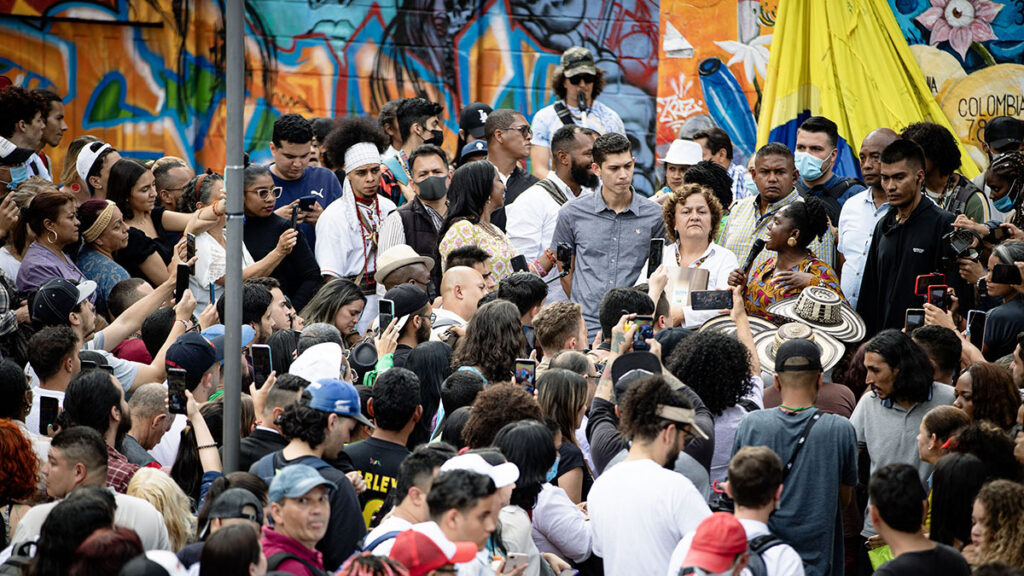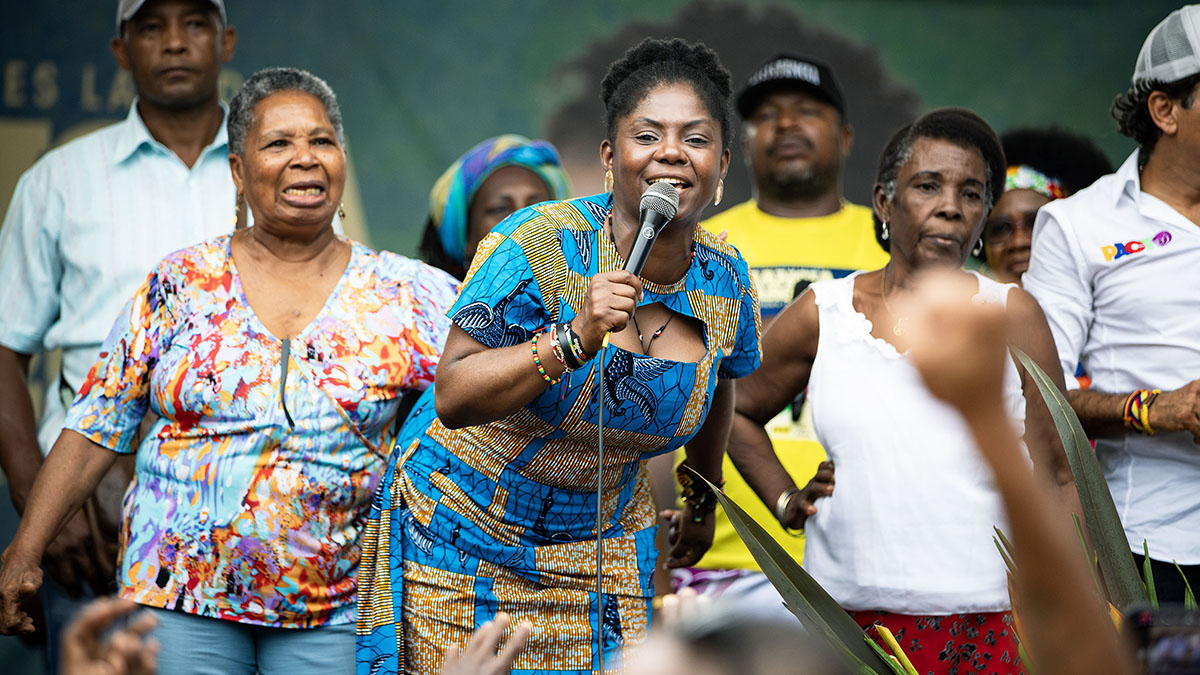“A different type of politics is possible,” says Igualada director Juan Mejía Botero backstage after his film’s global premiere at the Sundance Film Festival. And he should know. Igualada follows Francia Márquez, the first Black person and only the second woman to become Vice President in Colombia. Mejía has known Márquez for nearly two decades and the film features interviews from her early days through her historic run for high office.
The documentary will be available on PBS as of July 7, 2025.
“Francia is a grassroots community activist. She’s a black woman, [a] rural woman, born in poverty, who was a single mother at a very young age [and who] worked as a domestic worker cleaning homes for wealthier families,” Mejía explains. “But who, from a very young age, became an organizer and an activist around issues of territory, environmental issues, and social justice in general.”
The two met back in 2006 when Mejía was working on a series of films about the forced displacement taking place in Colombia. He remembers Márquez was “trying to get a visa to do a speaking tour in the US about what was happening in her community in La Toma. They were fighting against the displacement by mining concessions on their land, and we became friends.”
Igualada features interviews starting with her as a young mother. She’s frustrated but undaunted when she looks at the problems in front of her. Or as Mejía says, “People talk about her temper, people talk about [her being] angry or resentful. And I just always think, when you live in a country like Colombia, the weird thing is not to be angry. She’s not resentful. She’s not hateful. But yes, she has anger at injustice and what she’s gone through. She’s seen so many people around her [who] have been killed for fighting the same battles that she’s fighting.” And that should make everyone angry.
When Márquez told Mejía she was thinking of running for President, he thought it was “crazy,” but he persuaded her to let him make a film about it. “We’ve had hard discussions about the film because she feels she did not need to be centered too much. She wants everybody to know that this is a collective struggle. It’s not her struggle,” Mejía shares, echoing a point Márquez made multiple times in the film.
And yet it is Márquez who is at the front, risking her life. “She survived one assassination attempt already,” Mejía recounts, and “Her candidacy also lifted the lid off a lot of rotten stuff in the country. The misogynistic and racist attacks against her are every day. [They are] really dark and sad and so blatant and nasty. She not only has to deal with her life being at risk all the time but she’s got to deal with this type of things.”
In the film, we see Márquez reading hateful social media posts, but it’s not just online. “The mainstream press does it in more subtle ways. There’s constant questioning of how she spends money that I don’t think applied to previous vice presidents the same way that it’s been applied to her. Everything she does is put under a microscope. Every penny she spends is dissected,” says Mejía, “That comes from issues of class. It’s very, very hard for people in Colombia, not only the opposition, [but] even people within the government, to come to terms with the fact that a Black rural woman that doesn’t come from the elite, that doesn’t speak like the elite, is the second most important person in government.”

The film ends with Márquez assuming office but of course, her story doesn’t end there. And her struggle isn’t easier, even from one of the highest offices in the land. “Government is hard. You can change who is in place, but those structural systems that have been in place for centuries, [they] still remain,” asserts Mejía. “She has an uphill battle, day in and day out.”
Still, Igualada is a story of hope. Of how one person can make a difference in the pursuit of justice. “That’s the power that Francia has, she can really inspire you to believe,” explains Mejía, “Colombia has been ruled basically by the same folks forever. [It] never had a progressive government in its history. So it’s easy to become disillusioned and frustrated. And I think many people were, but I think she has an ability to make people believe again.”
With that ability, Igualada shows how a new type of politics seems not only to be possible but to have arrived in the body of one Black rural woman, one former domestic worker, one activist with conviction so strong that she’s willing to risk her life for it. Márquez is the Igualada, of the film’s title. It’s a slur for a person who demands equal rights, but it also serves as a rallying cry for Francia Márquez, her community, her country, and the rest of us who dare to listen.

This story was updated July 4, 2025 to include Igualada’s distribution on PBS and trailer.

